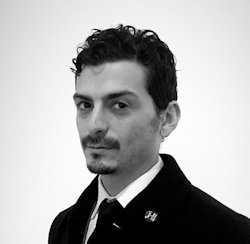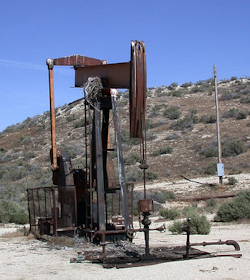SEJournal Online is the digital news magazine of the Society of Environmental Journalists. Learn more about SEJournal Online, including submission, subscription and advertising information.
 |
Inside Story: Beat Reporter Spotlights Costs of California's Environmental Reckoning
Aaron Cantú's beat reporting for Capital & Main shines a critical spotlight on California's faltering environmental regulations and the powerful influence of the oil and gas industry. Through a recent series of stories, which won second place for Outstanding Beat Reporting, Small, in the Society of Environmental Journalists' 22nd Annual Awards for Reporting on the Environment, Cantú explores the intersection of science, politics and community impact, uncovering systemic flaws and amplifying the voices of residents — particularly Spanish-speaking communities — living in the shadow of refineries. His work highlights the human cost of pollution and regulatory loopholes, offering a compelling narrative of resilience and advocacy.
 |
SEJournal Online recently caught up with Cantú via email. Here is the conversation.
SEJournal: How did you get your winning story ideas?
Aaron Cantú: It was my beat coverage, which is reporting on the influence of the oil and gas industry on California's climate and energy policies.
SEJournal: What was the biggest challenge in reporting the pieces and how did you solve that challenge?
Cantú: The biggest challenge was and remains how to convey complex scientific and political topics for lay audiences, particularly keeping it brief.
SEJournal: What most surprised you about your findings?
California has become a PR laboratory
for the oil and gas industry to
workshop its pitch about being
part of the climate solution.
Cantú: I was surprised to learn that California has become a PR laboratory for the oil and gas industry to workshop its pitch about being part of the climate solution. Such as through producing low-carbon fuels, credit-generating schemes, capturing carbon and producing hydrogen.
SEJournal: How did you decide to tell the series and why?
Cantú: I found that focusing on state-level policies presented me with an opportunity to go deep on a subject few at the time were looking at.
SEJournal: Does the issue covered in your series have disproportional impact on people of low income, or people with a particular ethnic or racial background? What efforts, if any, did you make to include perspectives of people who may feel that journalists have left them out of public conversation over the years?
Cantú: Yes. People of low income, and people of color, are disproportionately impacted by pollution from fossil fuel infrastructure as well as the effects of climate change.
 |
| An abandoned oil well in California’s Central Valley. Photo: Don Barrett via Flickr Creative Commons (CC BY-NC-ND 2.0). |
SEJournal: What would you do differently now, if anything, in reporting or telling the series and why?
Cantú: I probably would have tried to break up some of the longer stories, and I wouldn't have written a story longer than 2,000 words.
SEJournal: What lessons have you learned from your stories?
Cantú: I've learned quite a bit about how the fossil fuel industry positions itself as a climate solution.
SEJournal: What practical advice would you give to other reporters pursuing similar projects, including any specific techniques or tools you used and could tell us more about?
Cantú: Climate and environmental advocacy groups have a lot of knowledge, and are political actors worthy of coverage similar to the industry or lawmakers.
SEJournal: Could you characterize the resources that went into producing your prize-winning reporting (estimated costs, i.e., legal, travel or other; or estimated hours spent by the team to produce)? Did you receive any grants or fellowships to support it?
Cantú: I received a grant from the Fund for Investigative Journalism. I traveled to Kern County, and I spent many, many hours contacting experts.
SEJournal: Is there anything else you would like to share about this story or environmental journalism that wasn’t captured above?
Cantú: The political arena can be just as important to cover as the harder natural sciences aspects of our beat.
Aaron Miguel Cantú is an investigative reporter currently based in Los Angeles.
* From the weekly news magazine SEJournal Online, Vol. 9, No. 46. Content from each new issue of SEJournal Online is available to the public via the SEJournal Online main page. Subscribe to the e-newsletter here. And see past issues of the SEJournal archived here.













 Advertisement
Advertisement 



